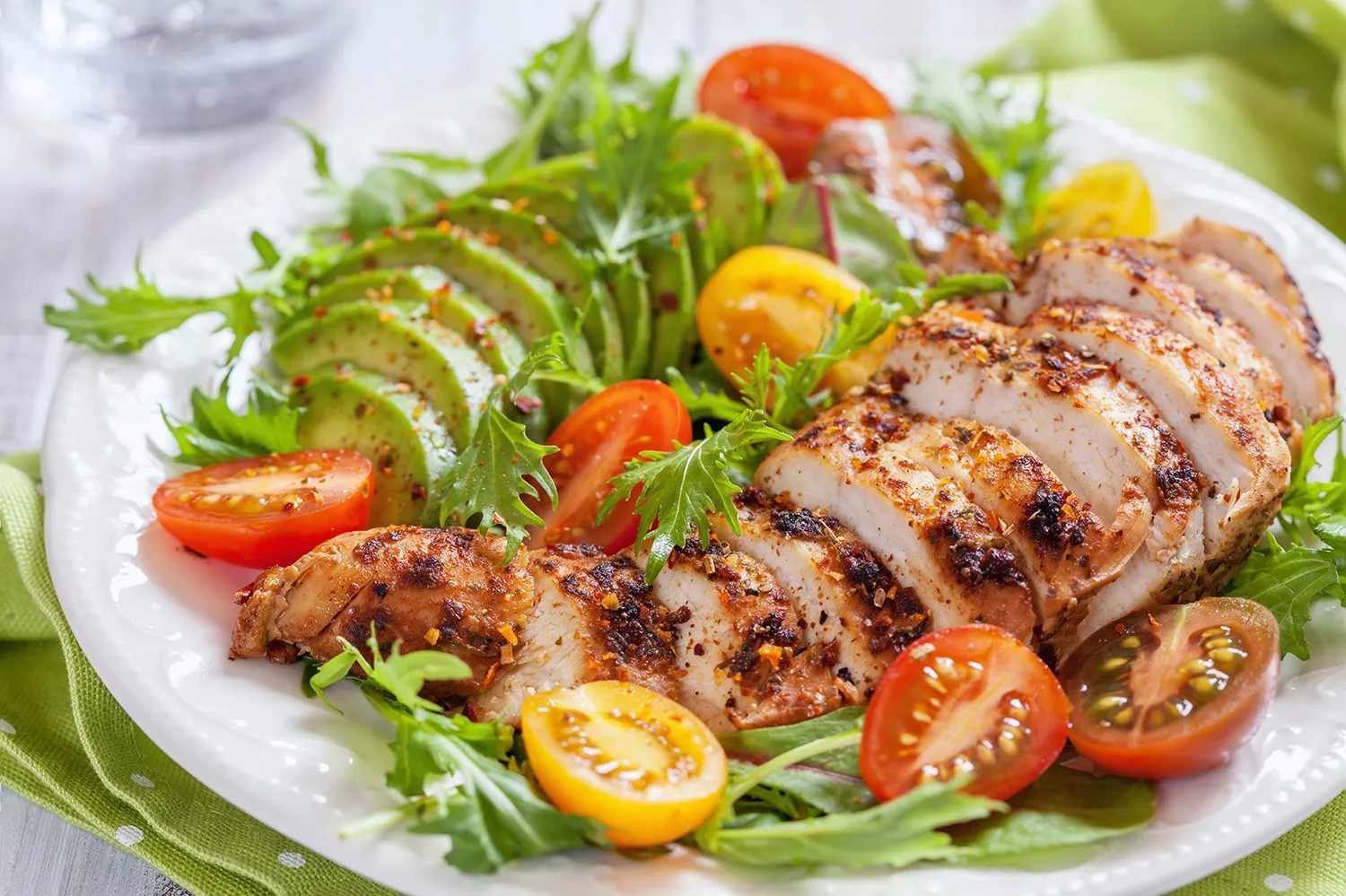
Low carbohydrate food recommendations
The focus of this advice is to reduce your intake of foods which convert to glucose in your body and to include more foods which have little impact on blood insulin and glucose levels.
This advice is suitable for
- people who wish to lose weight
- people with type 2 diabetes who wish to minimise their use of medication, lose weight or achieve remission
- people with prediabetes
- people with type 1 diabetes who wish to lose weight or reduce the amount of insulin they require
SUGAR: All sugars (white sugar, brown sugar, honey, molasses, etc.) are directly converted to glucose in your bloodstream. Ideally, they should be avoided as much as possible as they will all cause spikes in your blood glucose levels.
STARCHES: White refined carbohydrates such as bread, rolls, rice, pasta, and potatoes are quickly converted into glucose in the body and should be avoided where possible. Healthier options include oats, sweet potato, quinoa, brown rice, and breads with wholegrains or seeds. They can be included in limited portions.
FRUITS: All fruits contain sugar and can significantly raise glucose levels. Limit fruit to 1 or 2 small portions a day of lower sugar options such as berries or a small tangerine, apple or pear.
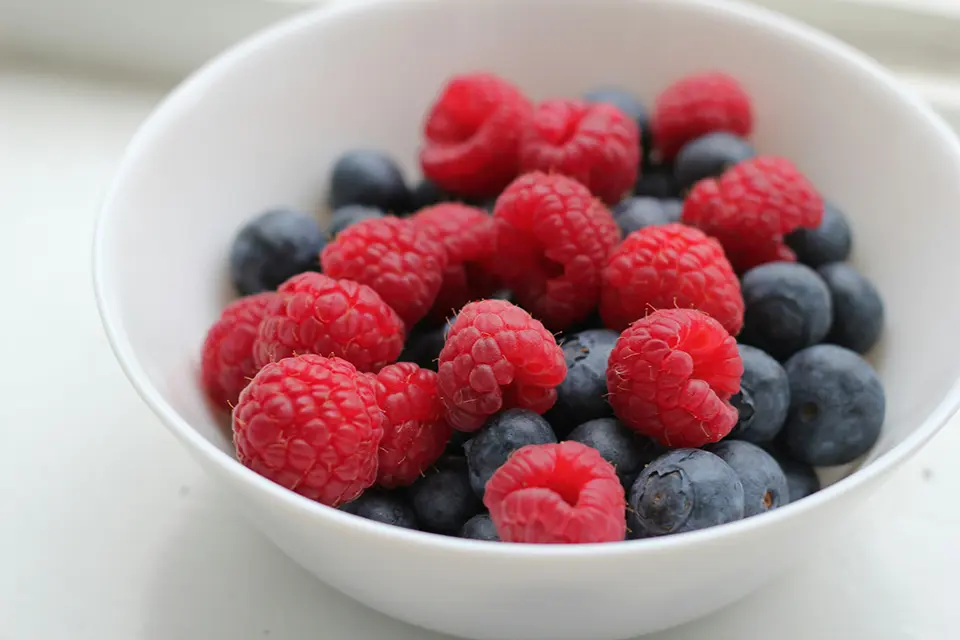
VEGETABLES: All green leafy vegetables and salad vegetables are good choices. Include at least two portions of vegetables with meals to replace starches on your plate. Try fresh cooked cauliflower, broccoli, courgette, aubergine, cabbage and green beans in place of large portions of pasta, potato or rice. Add flavour, taste and texture to meats with tomato, mushrooms, peppers and onions. These all have very little carbohydrate and are good sources of plant fibre.
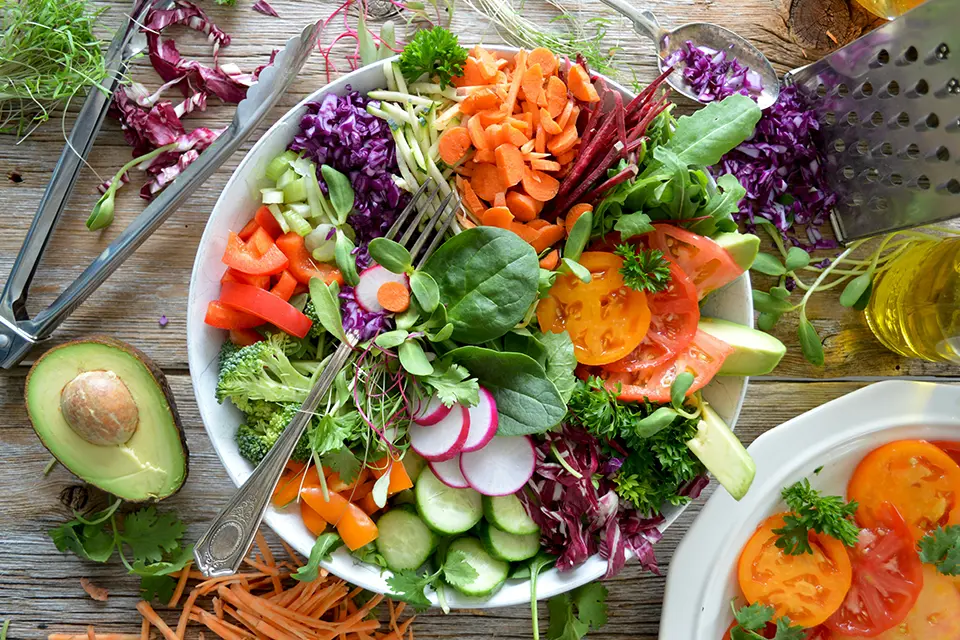
PROTEIN: Protein makes you feel fuller for longer and has less effect on glucose and insulin levels. Good quality protein should be included in each meal. All meats, chicken, fish - particularly oily fish such as salmon, tuna, and sardines - can be eaten freely. Eggs are excellent sources of high-quality protein. Highly processed meats such as burgers, corned beef and hot dogs should be avoided where possible. For vegetarians, beans and lentils are a good source of protein. They also provide carbohydrate so try and avoid large portions.
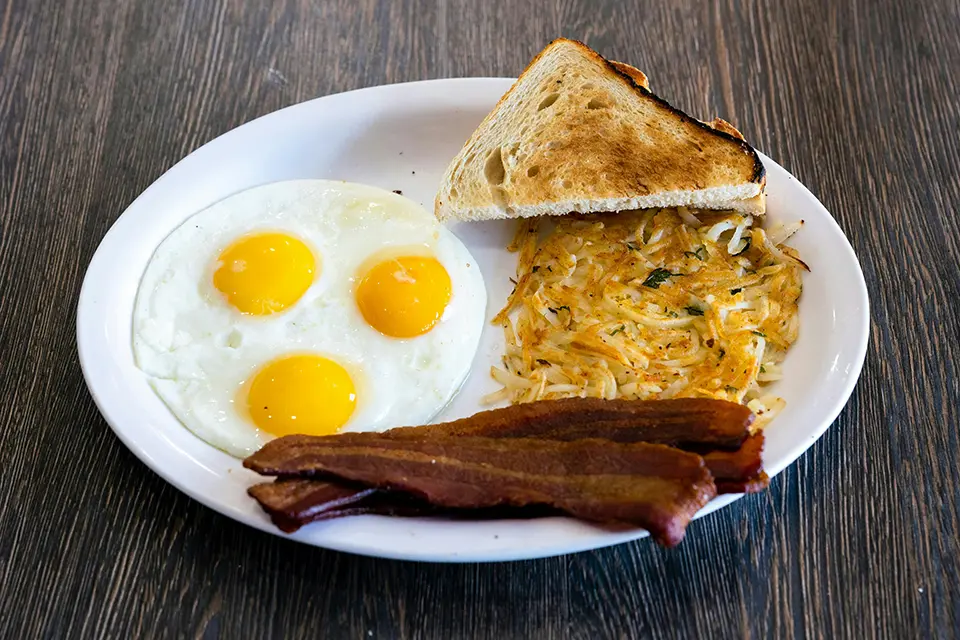
DAIRY: Milk and dairy products are another good source of protein, and there is no need to switch to soy or dairy free milks unless you are lactose intolerant. Full fat plain Greek yogurt with berries or chopped nuts makes an excellent high protein choice for breakfast, dessert or a snack. Cheese can also be used in moderation.
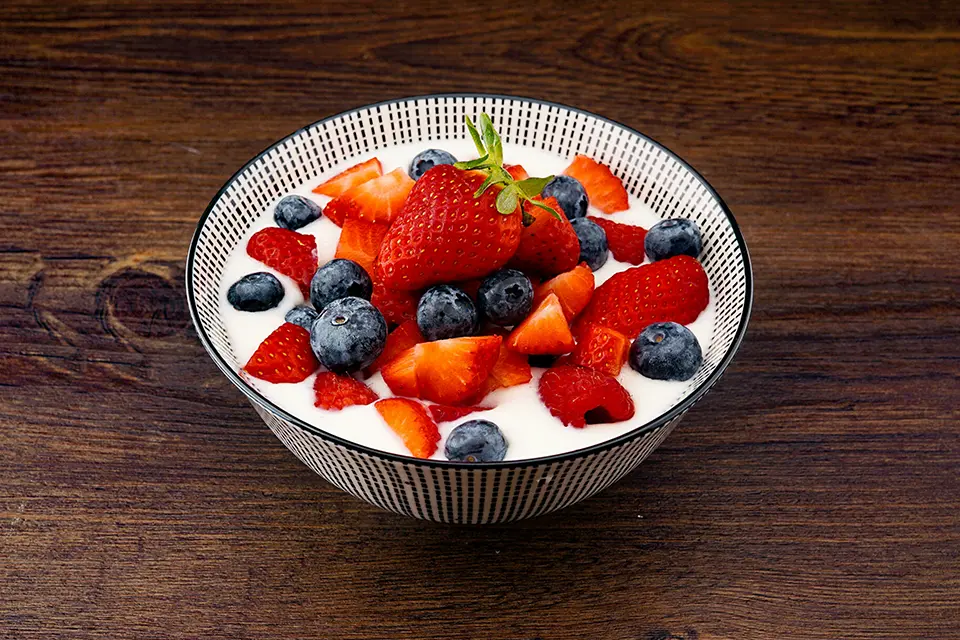
FATS: Choose healthy sources of fat, although beware that too much can cause weight gain. Seed oils are highly processed and are considered by some experts to be unhealthy. Olive oil and coconut oil can be used. You can use butter instead of margarine. Avocados and nuts (particularly almonds and walnuts) in moderation are also good sources of healthy fats.

DESSERTS: Desserts are usually high in sugar and can increase cravings for more sweet foods. If you have a sweet tooth the recommended approach is to avoid having desserts, cakes and biscuits at home. Combine berries with plain Greek yoghurt or double cream or use some of the recipes in the Low Carb Diabetes Cookbook for sweet treats.
BEVERAGES: ALL SUGAR-SWEETENED BEVERAGES INCLUDING FRUIT JUICE SHOULD BE AVOIDED COMPLETELY. Instead of sweet drinks, aim to drink plain water, sparkling water or water infused with lemon or lime slices.
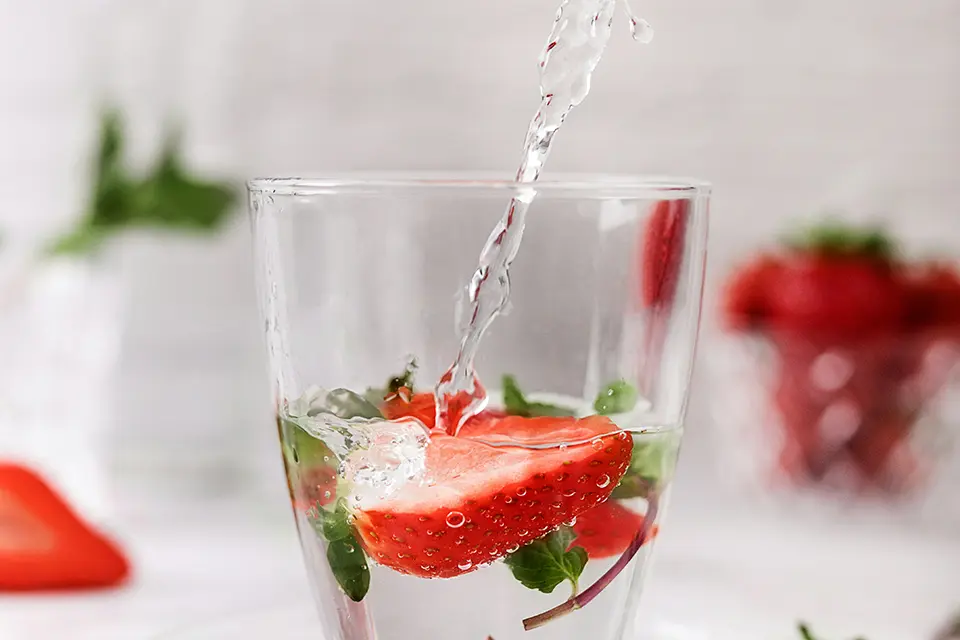
ALCOHOL: Alcoholic beverages are high in empty calories and if you want to lose weight should be reduced or avoided. Beer and mixed drinks contain carbohydrate and will interfere with losing weight. Wine and spirits are better options.
The following table provides some examples for each meal of the day
| CHOOSE THESE... | INSTEAD OF THESE... | |
|---|---|---|
| Breakfast |
|
|
| Lunch |
|
|
| Evening meal |
|
|
| Snacks |
|
|
| Drinks |
|
|
If you have diabetes, checking your glucose before and two hours after a meal is a good way of assessing the effect of what you eat on your glucose levels. Aim to do this at least once a day.
